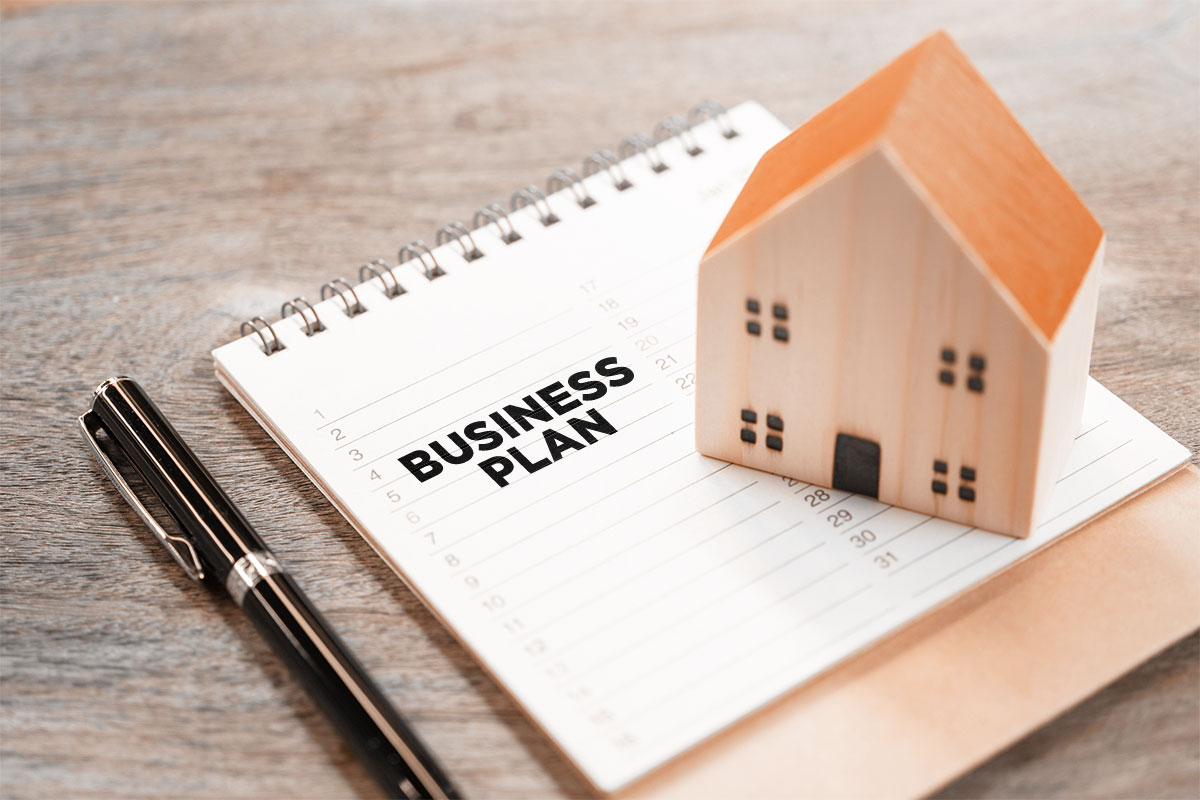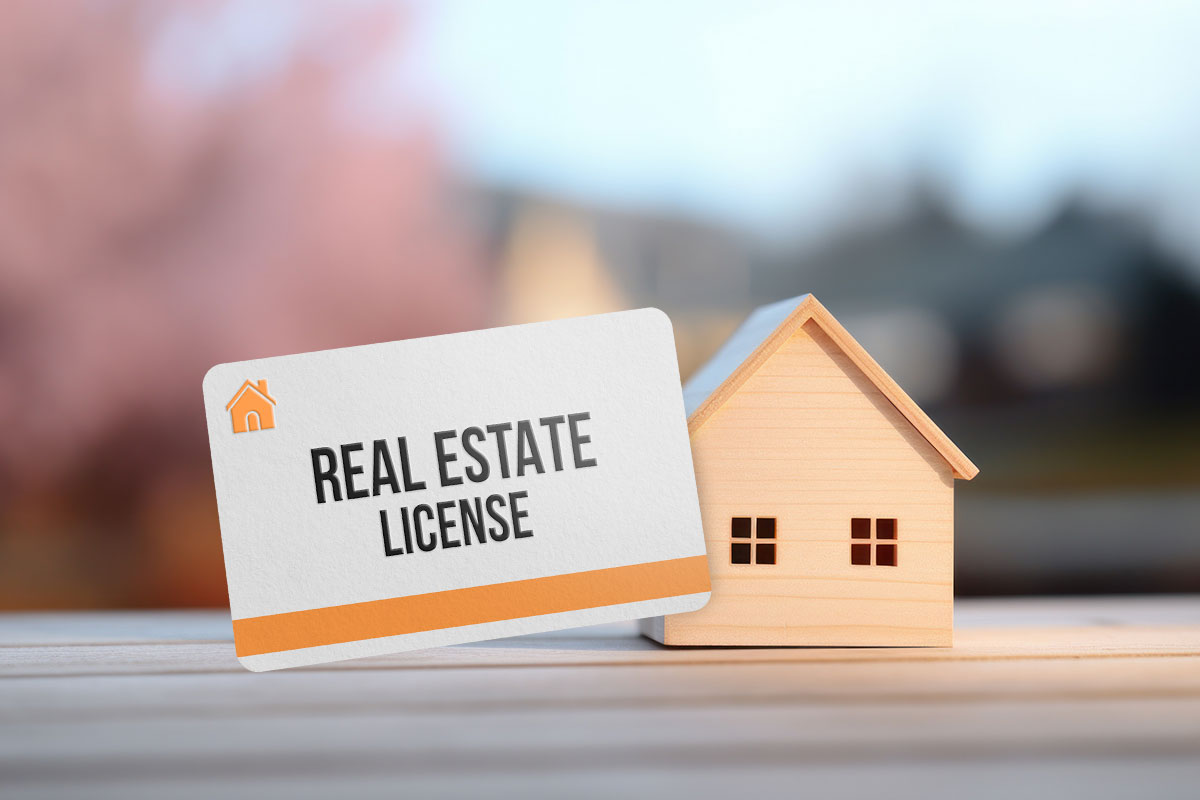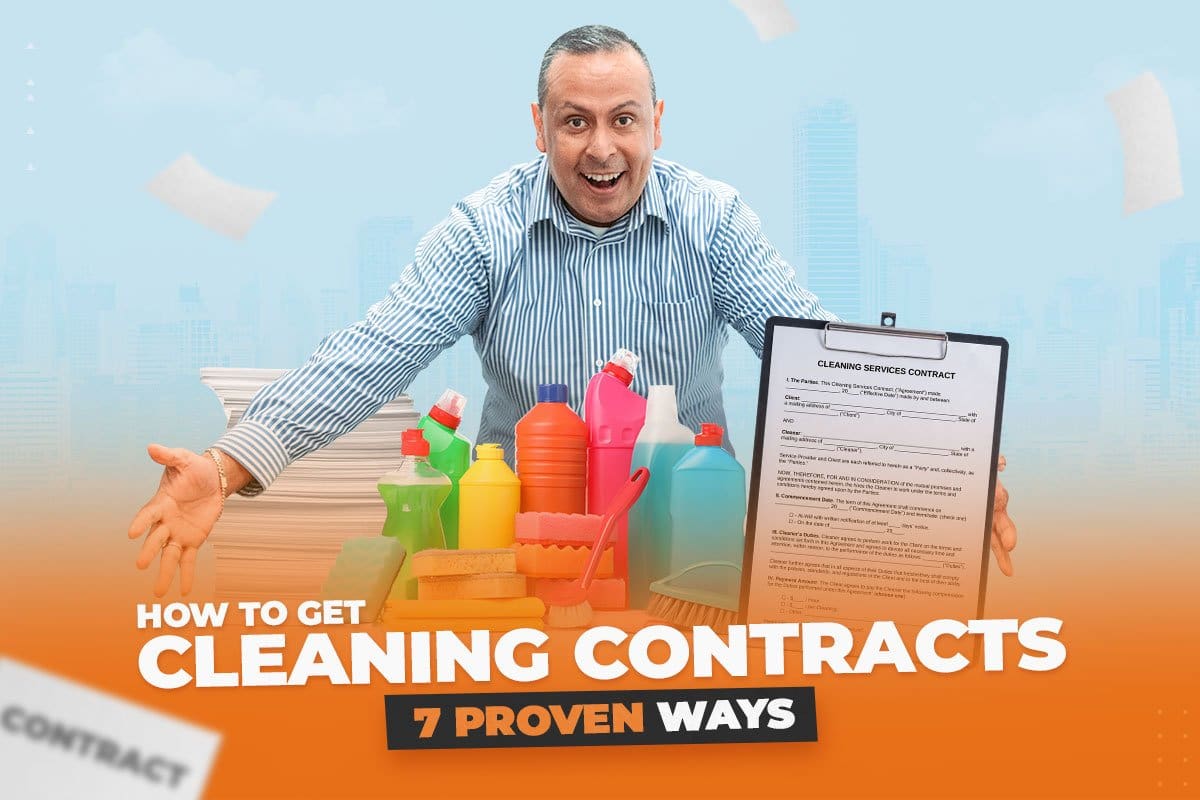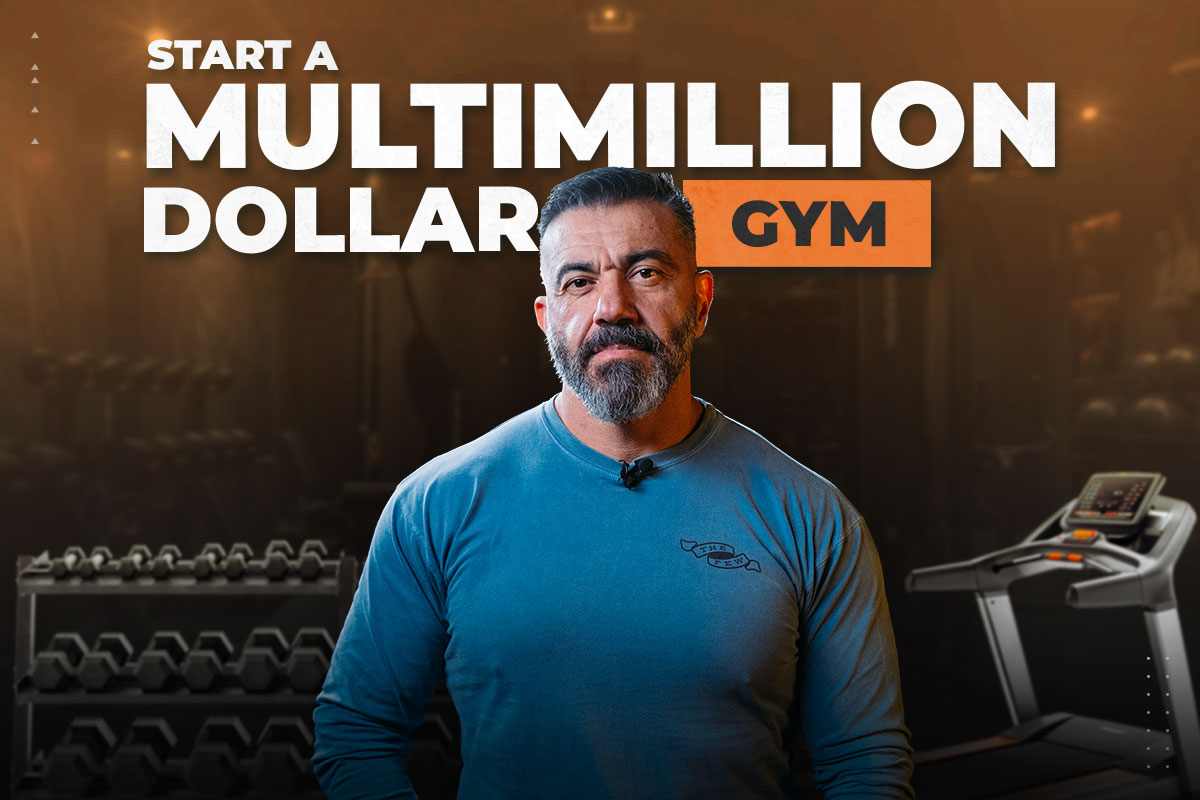Did you know that approximately 25.8% of the $123.8 trillion net worth in the United States is held in real estate?
That means learning how to start a real estate business is one of the most crucial skills for entrepreneurs. Fortunately, we’ve talked to a lot of people about real estate.
We’ve talked to real estate business owners who collectively have hundreds of millions in property value and make millions per year to find out how they approach the real estate industry.
In this blog, we’ll share information about the real estate industry and explain how to start a real estate business. We’ll also analyze case studies and answer frequently asked questions about real estate.
You can either read straight through or click on any of the links below to jump to that section:
Let’s start by discussing the real estate industry.
Learn About the Real Estate Industry
You should familiarize yourself with the real estate market before you decide to start a real estate business. The information in this section comes from our business ideas database. Let’s look at some of the things you’ll want to know before you enter the industry.
How much does it cost to start a real estate business?

Most real estate businesses cost between $6K and $55K to start. However, some of the more advanced setups like real estate investment trusts cost up to $5.5M in initial costs.
These figures don’t include the costs of becoming a real estate agent or broker. Licensing varies by state and often requires on-the-job experience before you can start your own company or handle real estate transactions.
How much do real estate businesses make?
The average revenue for a real estate business averages between $41K for a real estate photography business to as high as $94M for real estate investment trusts.
The most common type of real estate business is a real estate agency. Those average around $191K per year.
Is real estate profitable?
Most companies in the real estate industry have profit margins of 7.6% to 22.3%. Exact profits will vary based on your niche.
Many real estate agents are licensed but don’t buy or sell any houses during a year. This can be for any number of reasons. They may be licensed to save on transactions or maintain the licensure required for property management.
Plus, there are also business brokerages and commercial leasing agents.
Do I need to be a real estate agent to start a real estate business?

No, you don’t have to be a real estate agent to start a real estate business, but it’s helpful to be at least an agent and preferably a broker. With these qualifications, you will be able to handle more of the legal aspects yourself.
What are some real estate business ideas?
There are numerous real estate business ideas that you might pursue. Some of the most common business ideas include:
- Investing in real estate
- Real estate photography services
- Mortgage loans
- Title companies
- Real estate agencies
- Flipping houses
- Real estate investment firms
- Real estate wholesaling
- Real estate investment trusts (REITs)
- Property management companies
- Real estate software as a service
- Construction companies
You can learn more about these ideas in UpFlip Academy. Next, let’s look at some examples of successful real estate businesses.
Successful Real Estate Business Examples
The three entrepreneurs below had very different paths to building wealth through real estate. Check out their stories.
Aaron Amuchastegui
Aaron was building homes when the 2008 financial crisis hit and nobody was buying homes. That’s when he converted to buying foreclosures.
Since then, he’s bought more than 800 properties and created tools like Lead Propeller, Prophawk, and Roddy’s Foreclosure Listing. He also launched a masterclass about buying foreclosures. Aaron now earns more than $3.6 million annually.
Find out how this real estate business mogul runs his businesses:
Nicasa: Airbnb Property Management
Nicasa is a real estate business started by Sid Bahadur and Eva Xia. They run their Airbnb rental and property management company using strategies similar to hotels.
Their strategies have led to over $3 million in revenue while managing 22 properties. They share how they operate their successful real estate business in the video below:
Thach Real Estate Group: Real Estate Agents Becoming Investors
Thach Nguyen was a real estate agent when his mentor explained:
This insight helped him understand that just selling real estate isn’t enough. He started buying real estate and has now developed a portfolio of properties worth over $100M.
Find out how he approaches the real estate business:
As you can see, each of these real estate professionals took a different approach but still developed great wealth. You can become a real estate professional too.
Keep reading to find out everything you need to know to make a real estate business profitable.
How to Start a Real Estate Business
Real estate professionals and people in other industries can make a great living with a real estate business. It helps to have a strategy before you start your real estate business. You’ll want to follow a process similar to the one below:
- Conduct market research.
- Create a business plan.
- Determine startup costs.
- Create a financial plan.
- Build your brand.
- Create a sales plan.
- Obtain your real estate license.
- Choose a business structure.
- Get an EIN.
- Build a website.
- Get business insurance.
- Start networking.
- Join national associations.
- Find clients and tenants.
- Keep growing your business.
Find out how each of these steps will help you find success in the real estate industry.
Step #1. Conduct Market Research
The real estate industry is a huge market. There are plenty of ways to make money when you start your own real estate business. Learn about the different niches to figure out what part of the real estate market you want to enter.
Then look at the requirements to start a real estate business and determine who the major competitors are. From there, analyze the growth outlook. These details will all help you create an effective real estate business plan.
Step #2. Create a Real Estate Business Plan

Creating a real estate business plan is an essential step. Thach explained a really easy way to do it.
Second, what is the average rent in your location?
When you divide the two, you know exactly how many pieces of real estate you need to make the monthly income you want.
Alternatively, you can read our blog about how to create a formal business plan.
Step #3. Determine Start-Up Costs
While most real estate business owners spend between $6K to $55K to get into real estate, your business model will impact the actual costs. Even if you just want to buy a single-family residence to start a real estate business, you’ll still incur at least these baseline costs:
- Forming a limited liability company: under $1K
- Real estate license: $400 to $2.5K depending on state requirements
- Website: $100 monthly
- Customer relationship management: $0 to $1K monthly
- Property management software: $0 to $1K monthly
- Down payment on property: $45.8K to $157.4K
- Furniture (optional): $2K to $20K
There are also ways to start a real estate business without money like rental arbitrage or wholesale home sales.
Step #4. Create a Financial Plan
You’ll want to create a financial plan to help you figure out how you’re going to reach your goals. This may be a bit challenging because real estate markets fluctuate dramatically even over short periods.
In this financial plan, you’ll need to start with some assumptions:
- Number of properties owned
- Interest rates
- Changes in the housing market for buying new properties
Next, you’ll want to calculate approximate monthly and annual earnings. Include all the costs associated with running the business each month.
Here are the costs allowed by the Internal Revenue Service for Schedule E rental properties:
- Advertising
- Auto and travel
- Cleaning and maintenance
- Commissions
- Insurance
- Legal and other professional fees
- Management fees
- Mortgage interest paid to banks, etc.
- Other interest
- Repairs
- Supplies
- Taxes
- Utilities
- Depreciation expense or depletion
They don’t include the actual principal payments on the mortgage, but they do view depreciation as a non-cash expense. You should anticipate at least the following:
- Mortgage and property taxes: Variable based on home price
- Private mortgage insurance: Up to 1.5% of the mortgage
- Maintenance: 1% to 2% of the property value per year
- Homeowners insurance: $2,285 per year (average)
You may also need to budget for utilities and homeowners association fees depending on the exact arrangement of your business.
Pro Tip: It’s best to set aside emergency funds in case you need to pay for unexpected costs such as legal fees or extensive cleaning.
Once you know your expected real estate income and expenses, calculate how much profit you’ll have left each month as well as cumulative profit. Each time you reach enough profit to pay 20% as a down payment, you have enough money to pay for another property.
There are also financial tools that let you borrow against equity to speed up the process of developing wealth. However, these come with additional risk, so you should make sure you fully understand how each loan product works.
Step #5. Build Your Brand

There are two ways to go about building your brand in real estate: personal brands or corporate brands. Depending on the business and your goals, you may want to build one or even both brands.
Corporate Brands
This is the type of brand you’ll want to build if you’re a company like CBRE Group, Inc., which manages commercial real estate properties. The same applies to RE/MAX for residential real estate.
You’ll want to create content that helps people understand what you do. If you’re also building a personal brand, try to include the same person or people in each piece of content.
Personal Brands
Realtors and real estate agents commonly use personal branding to find clients. This involves using your name in marketing to help people remember you as an individual. The goal here is to create a positive reputation as a real estate agent or other professional.
You might want to develop a reputation for:
- Commercial real estate
- Residential real estate
- Custom homes
- Land sales
You might also want people to describe you as:
- Helpful
- Affordable
- Informative
- Resourceful
Promoting what you do and how you do it will help people recommend your real estate business to others who could benefit from your services and personal qualities.
Step #6. Create a Sales Plan
Depending on your real estate business, you will need different strategies to find:
- Vendors
- Real estate agents
- Property owners
- Employees
- Tenants
Look at what the top companies do and what actions you can take to differentiate yourself from competitors.
Step #7. Obtain Your Real Estate License

As a business owner, you’ll benefit from becoming a licensed real estate professional. This will normally require pre-licensing education, taking an exam, and passing a background check.
Each state has its own requirements for licensure. Some allow you to immediately become your own real estate brokerage and do almost anything involving real estate. Others have separate requirements for real estate agents, brokerages, property managers, and business brokers.
Make sure to check your state’s requirements.
Step #8. Choose a Business Structure
Some of the most common business structures for your own real estate business include limited liability companies (LLCs), sole proprietorships, S corporations, and trusts.
The majority of these structures separate personal and business liability, but a sole proprietorship does not. It’s ill advised to run a real estate business without liability protection.
We suggest talking to an expert in real estate law to establish the best structure for your real estate business model.
Step #9. Get an EIN
An employer identification number (EIN) is issued by the IRS. You absolutely need to have an EIN if you’re going to hire employees.
Step #10. Build a Website

You’ll want a real estate website to market your services and properties. At a minimum, you should have separate pages for your company information, properties, contact details, and terms and conditions.
You’ll also need a disclosure about how you use cookies and your site map. Find out more about how to build a website.
Step #11. Get Business Insurance
Real estate companies need to have insurance to protect their properties against damage and liability. This ensures you’re protected in case potential clients, visitors, or employees get hurt on properties that you own or manage.
We suggest using Simply Business to quickly get quotes from multiple insurance companies.
Step #12. Start Networking

You’ll want a marketing strategy to help you get your brand out to potential clients. There are numerous ways to do this:
- Making a professional website
- Attending networking events
- Marketing your business on social media
- Joining business directories through groups like the National Association of REALTORS®
For in-person marketing, you’ll need materials such as business cards and pamphlets to help potential clients understand how you can help them with their real estate needs.
Step #13. Join National Associations
Joining associations of real estate agents, investors, property managers, and other real estate professionals is a good way to improve your real estate career. It will also ensure you’re keeping up with industry trends and building your web presence.
The Library of Congress has a great list of real estate associations, including:
- American Bankers Association
- American Institute of Architects
- American Real Estate Society
- American Seniors Housing Association
- Building Owners and Managers Association
Most of these organizations charge membership fees to join. In return, they normally offer industry education, certifications, admission to industry events, and discounts on suppliers.
Step #14. Find Clients and Tenants
Every real estate business needs clients, tenants, or both. We’ve already discussed many of the ways to meet industry professionals, but finding tenants requires slightly different marketing strategies.
One of the simplest methods is to list the property on relevant marketplaces. Some popular markets and platforms include the following:
- Airbnb: This is currently the leading short-term rental platform.
- Vrbo: Vrbo is a main Airbnb competitor.
- Apartments.com: This site allows you to list apartments and home rentals.
- Facebook Marketplace: Whether you’re selling or leasing, Facebook can help you reach your local community.
- Zillow: You can list properties for rent or sale on this real estate business site.
- HotPads: Use this site if you have a unique house and lots of photos.
- Redfin: This website offers 3D tours, help from local agents, and premium placements.
- HomeFinder: This listing tool lets you upload photos, share listings to social media, and pay for priority sorting.
- RealtyTrac: This platform specializes in foreclosures and defaulted properties.
- Century21: Century21 is one of the top brokerages.
- Movoto: Movoto is another licensed real estate brokerage if you want to sell without a broker’s license.
As a property manager, you’ll need to follow all applicable real estate laws in your local real estate market. That means you’ll either need to work with a trustworthy real estate professional or become one yourself.
Becoming a professional makes it easier to create contracts like rental agreements, perform background checks, accept payments, and pay suppliers. Plus, you may have to make court filings for evictions or tenant disputes.
You’ll also need a customer relationship management system to manage your real estate properties and routine tenant requests.
Step #15. Keep Growing Your Business

Once your new real estate business starts bringing in a profit, you’ll eventually want to expand. This will mean different things for different types of real estate companies.
A real estate broker or a house flipper might want to make more real estate sales. Meanwhile, a real estate investor or Airbnb owner might want to acquire more properties and rent them out. If you’re a property management company, expanding could involve finding more real estate business owners who need your services.
Growth may be slow at first, but as your profitable business increases the amount of cash you have on hand, you’ll be able to buy more properties at a faster rate.
Real Estate Business FAQ
Want to know more about real estate services? Check out some of the questions below.
How do beginners start real estate businesses?

Beginners can buy shares of a real estate investment trust to start earning profits from the real estate industry. REITs expose you to the market with low risk.
As you build wealth, you might want to consider more direct ownership. This could include buying rental properties, flipping houses, or starting a property management business.
Is it hard to start a real estate business?
Starting a successful real estate business is easier than you might think, but you’ll still need to put in the work. A new real estate business may require education and a significant investment of both time and money.
The key is to create a comprehensive business plan, network with your target audience, and keep pushing forward. There’s a reason why real estate is one of the largest segments of wealth for many Americans.
How to start a real estate business with little money
There are three main ways to start making money in your local real estate market when you don’t have much money:
- Wholesale real estate: With wholesale real estate, you’re contacting properties that aren’t listed for sale and offering to find potential buyers for a fee.
- Real estate investment trusts: This involves investing in a business entity that already owns many properties. You earn a share of the profits on a monthly, quarterly, or annual basis.
- Rental arbitrage: In rental arbitrage, you rent a property and sublease it. Many online property listings specifically ban this practice. However, it is legal as long as you negotiate the right to do so.
How do you start making money in real estate?

There are so many ways to start making money by offering real estate services. You should consider the following factors:
- Personal involvement: Real estate brokers and property managers have the most active involvement. Meanwhile, REITs allow you to invest in other real estate businesses and collect profits.
- Interest in sales: Real estate agents and brokers are self-employed business owners who are legally allowed to sell real estate to their target markets.
- Construction knowledge: Many real estate businesses focus on buying homes, fixing them up, and selling them for a profit. Alternatively, you can rent out the property once it’s renovated.
As you can see, you’ll want to do market research to establish which business strategy fits best with your lifestyle and professional goals.
How to start a real estate business with no money
Setting up an LLC and obtaining a business license cost money, so you can’t legally start a real estate business with no money. However, you can start a rental business through home hacking (i.e., renting out rooms in your home), real estate wholesaling, or rental arbitrage.
You’ll be taking on significant personal risk if you run these businesses without an LLC and insurance, so be careful.
How to start a real estate business from home
Many people with a real estate broker’s license run their business from home. It’s a cost-effective way to start selling real estate. In addition, most or all real estate investors run their businesses from home.
As long as you don’t have lots of people coming to your house, you should be allowed to run your own business from home. Some of the main benefits between a home-based real estate business and other real estate brokerages are:
- Lower business costs
- Being able to claim part of your home expenses as business expenses
- No commute
At the same time, you may want to rent a space in a coworking facility for client meetings or other professional activities.
Can you start your own real estate company?

Depending on what you’ll be doing in real estate, you may need to hire a licensed real estate agent or real estate broker to oversee transactions if you aren’t one yourself.
Many other types of real estate companies don’t require special licensing to perform the work.
Closing
We started by discussing the opportunities available in the real estate industry. Next, we established how three real estate business owners discovered their target markets and created their own successful real estate businesses.
From there, we explained how to start your own real estate business and answered frequently asked questions about the industry.
What kind of real estate business are you thinking about starting?







